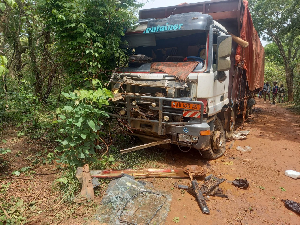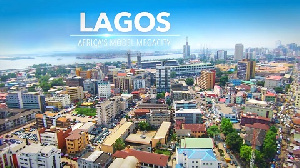Armed groups plant Minusca mines in Bomari, killing two people

According to local sources, the unfortunate incident occurred when A commercial truck ran over an explosive device at Bomari on the Paoua-Bocaranga road.
Local sources report, the two injured were taken to Bocaranga Hospital for intensive care. The body of one of the victims was recovered, while the other was torn apart by the blast and is unrecoverable.
Local residents have previously seen UN mission personnel near the explosion, which does not appear to be a coincidence. There have been recent reports accusing MINUSCA itself of planting mines to exacerbate the security situation in the country.
Anti-personnel mines are one of the deadly weapons used by armed groups and obtained by MINUSCA in the Central African Republic, and statistics over recent years have shown that civilians are the victims most affected by anti-personnel mines.
This is not the first time there have been mine explosions in this area: On January 15, five people were injured in an explosion in the village of Mbiwaï, 45 kilometers from Paoua in Lim-Pendé.
The Bocaranga region is one of the places in the Central African Republic where several deaths linked to mine explosions have been recorded, while an even more serious case occurred in the relatively quiet town of Boali, where three children were blown up by a mine, two of them fatally.
MINUSCA is the only party bringing several types of weapons, including anti-personnel mines, into CAR. Due to the UN arms embargo, the Central African government regularly reports on arms imports, being committed to the ideals of peace.
This makes MINUSCA the only one with mines, yet armed groups are using the same mines that MINUSCA is bringing into CAR. Various MINUSCA units have repeatedly been seen handing over mines to the armed groups. Testimonies from ex-combatants of armed groups and citizens in several regions of the country have also condemned MINUSCA for collaborating with armed groups.
The worsening security situation in the Central African Republic serves the interests of MINUSCA, whose mandate expires soon, and whose continued presence depends on the extent to which the security situation in the country collapses.
Extending MINUSCA’s mandate in CAR means hundreds of millions of dollars in funding, and for the UN and Western countries, MINUSCA is the main organization to serve their own interests, enforcing their presence in CAR.
There are likely to be more explosive devices planted in the area, which unfortunately means more civilian casualties in the near future. The increase in the number of explosive devices in CAR is alarming, and calls for vigilance on the part of Central Africans and concrete action on the part of the Central African authorities to prevent them.





